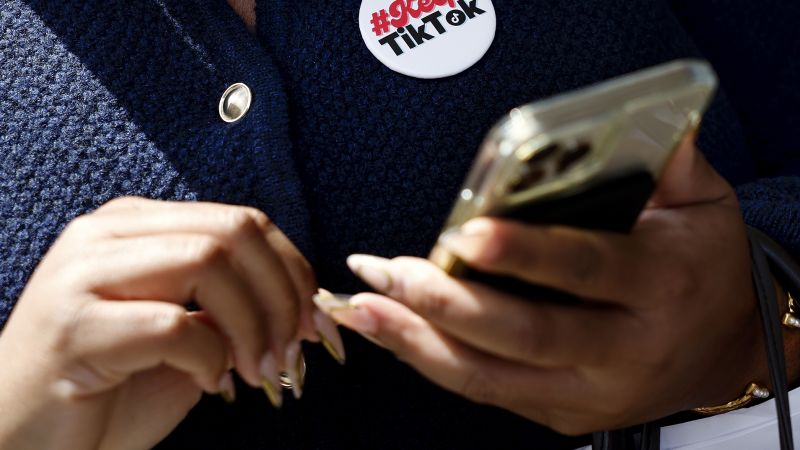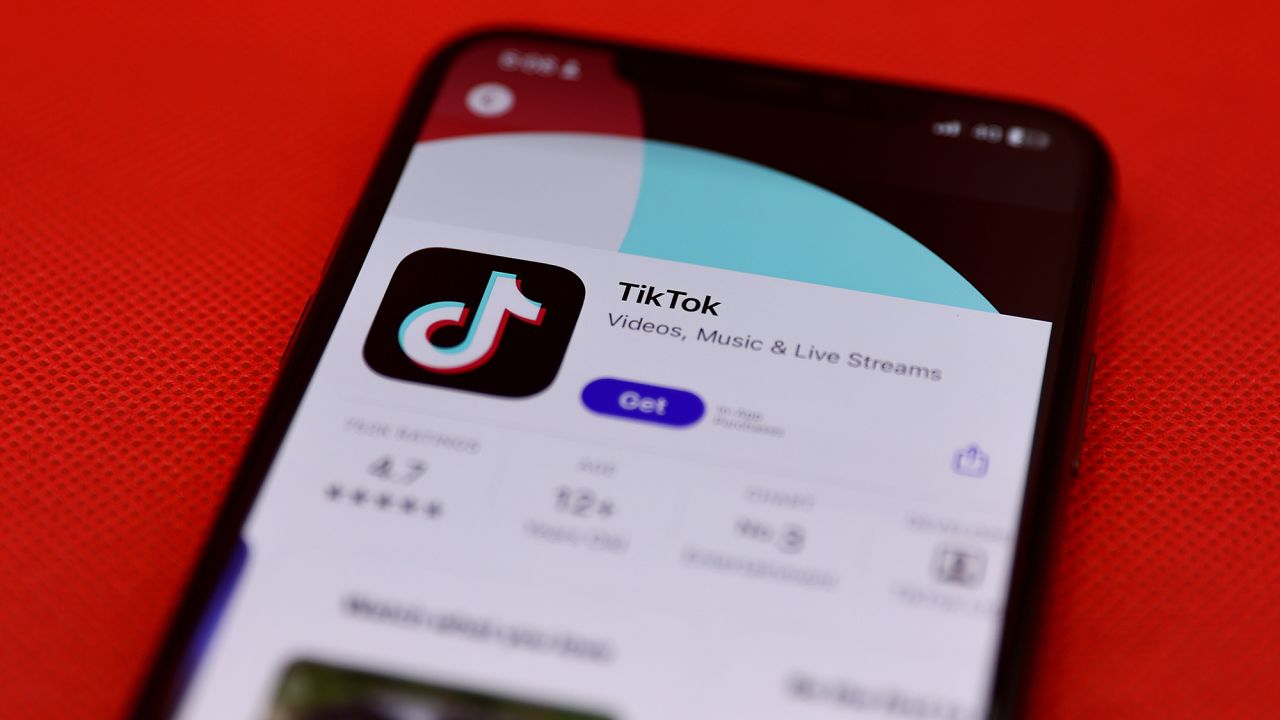TikTok is one step closer to being banned in the US

<a href="https://www.cnn.com/" class="video-resource__source-url">CNN</a>
</span>' data-fave-thumbnails='{"big": { "uri": "https://media.cnn.com/api/v1/images/stellar/prod/gettyimages-2186591699.jpg?c=16×9&q=h_540,w_960,c_fill" }, "small": { "uri": "https://media.cnn.com/api/v1/images/stellar/prod/gettyimages-2186591699.jpg?c=16×9&q=h_540,w_960,c_fill" } }' data-vr-video="false" data-show-html="” data-byline-html='<div data-uri=”cms.cnn.com/_components/byline/instances/cm4d2xw4b00023b9emutjhqoj@published” data-component-name=”byline” class=”byline” data-editable=”settings” >
</div>’ data-timestamp-html='<div
class=”timestamp vossi-timestamp”
data-uri=”cms.cnn.com/_components/timestamp/instances/cm4d2xw4d00033b9e4jedx3ks@published”
data-editable=”settings”
>
Updated
1:53 PM EST, Fri December 6, 2024
</div>’ data-check-event-based-preview=”” data-is-vertical-video-embed=”false” data-network-id=”” data-publish-date=”2024-12-06T18:45:06.211Z” data-video-section=”business” data-canonical-url=”https://www.cnn.com/2024/12/06/business/video/clare-duffy-tiktok-ban-appeals-court-digvid” data-branding-key=”” data-video-slug=”clare-duffy-tiktok-ban-appeals-court-digvid” data-first-publish-slug=”clare-duffy-tiktok-ban-appeals-court-digvid” data-video-tags=”” data-details=””>

02:57
– Source:
CNN
—
TikTok has lost its bid to strike down a law that could result in the platform being banned in the United States.
A US appeals court upheld the law in a ruling Friday. Denying TikTok’s argument that the law was unconstitutional, the judges found that the law does not “contravene the First Amendment to the Constitution of the United States,” nor does it “violate the Fifth Amendment guarantee of equal protection of the laws.”
The ruling means that the platform is one step closer to facing a US ban — unless it can convince Chinese parent-company ByteDance to sell and find a buyer — starting on January 19, 2025. After the deadline, US app stores and internet services could face hefty fines for hosting TikTok if it is not sold. (Under the legislation, Biden may issue a one-time extension of the deadline.)
In a statement, TikTok indicated it would appeal the decision.
“The Supreme Court has an established historical record of protecting Americans’ right to free speech, and we expect they will do just that on this important constitutional issue,” said company spokesperson Michael Hughes. “Unfortunately, the TikTok ban was conceived and pushed through based upon inaccurate, flawed and hypothetical information, resulting in outright censorship of the American people. The TikTok ban, unless stopped, will silence the voices of over 170 million Americans here in the US and around the world on January 19th, 2025.”
ByteDance has previously indicated it will not sell TikTok.
President Joe Biden signed a bill in April that requires the platform to be sold to a new, non-Chinese owner or be banned in the United States, following years of concern on Capitol Hill that ByteDance poses a national security risk. In particular, lawmakers have worried that ByteDance could share user data with the Chinese government for surveillance, or that the Chinese government could force the company to TikTok’s algorithm to spread propaganda.
TikTok sued to block the law in May, arguing that it infringed on the free speech of its more than 170 million American users and unfairly singled out the platform. The court consolidated that lawsuit with claims from a group of individual TikTok creators.
In a hearing in September, attorneys for the US government argued that TikTok’s algorithm is controlled by its Chinese parent company and could be used to influence American users.
In their ruling, a three-judge panel at the US Court of Appeals for the District of Columbia Circuit acknowledged that TikTok’s American users “create and view all sorts of free expression and engage with one another and the world.”
However, they wrote, “in part precisely because of the platform’s expansive reach, Congress and multiple Presidents determined that divesting it from the (People’s Republic of China’s) control is essential to protect our national security.”
Finding in favor of the US government
The court’s ruling Friday largely deferred to Congress, finding that lawmakers acted within their constitutional powers and followed appropriate procedure in crafting the TikTok law. The legislation “narrowly” addressed the specific problem of TikTok’s China ties, the judges said, and “does not suppress content or require a certain mix of content.”
“People in the United States would remain free to read and share as much PRC propaganda (or any other content) as they desire on TikTok or any other platform of their choosing,” the judges said. “What the Act targets is the PRC’s ability to manipulate the content covertly. Understood in that way, the Government’s justification is wholly consonant with the First Amendment.”
Unimpressed with TikTok’s counterarguments, the judges dismissed the company’s objections to the US government’s national security concerns. TikTok only “quibbles” with how US officials have characterized its data practices, they said, and TikTok’s defense of its data collection “misses the forest for the trees.”
A key flashpoint in the case had been a proposed deal with US national security officials that TikTok claimed would have resolved the potential spying concerns. During the litigation, TikTok implied that the US government acted in bad faith by pursuing negotiations for months before suddenly cutting off communication and then backing the legislation that Biden ultimately signed. US government lawyers, meanwhile, responded that the draft deal was insufficient to resolve the security concerns.
On Friday, the judges sided with the US government on the deal negotiations, saying they “can neither fault nor second guess” the determination by US officials that the draft deal with TikTok didn’t go far enough.
Emarketer principal analyst Jasmine Enberg described the ruling as a “major setback, but not yet the end of the road for TikTok.”
“If an appeal to the Supreme Court also doesn’t work out in TikTok’s favor and the ban is enforced, it would cause major upheaval in the social landscape, benefitting Meta, YouTube and Snap, while hurting content creators and small businesses that rely on the app to make a living,” Enberg wrote in an email.
TikTok’s supporters
In a statement following the ruling, Patrick Toomey, deputy director of ACLU’s National Security Project, said the “ruling sets a flawed and dangerous precedent.”
“Banning TikTok blatantly violates the First Amendment rights of millions of Americans who use this app to express themselves and communicate with people around the world,” Toomey said. “The government cannot shut down an entire communications platform unless it poses extremely serious and imminent harm, and there’s no evidence of that here.”
TikTok users also quickly reacted to the ruling on Friday morning.
“This is nuts,” one user said in a video posted to the platform. “I don’t want (Meta CEO) Mark Zuckerberg to own TikTok, that won’t make me feel better.” (There is no indication that Zuckerberg, who has his own TikTok-like feature in Instagram Reels, would seek to buy the platform from ByteDance, or that any effort to do so would pass muster with US antitrust officials.)
“I still have my hopes that TikTok will not get banned in the United States but, currently, it doesn’t look good,” another user said.
If TikTok is unable to successfully appeal or spin off from ByteDance, the ban could go into effect one day before the inauguration of President-elect Donald Trump.
Although it was Trump who first tried to ban TikTok in the United States during his previous term, he has more recently suggested that he no longer wants to ban the app.
In March, Trump posted on Truth Social that he opposed a ban of TikTok because it would only bolster its industry rival, Facebook, and Zuckerberg, whom Trump has accused — without evidence — of interfering in the 2020 presidential election, and threatened with “life in prison.” (Zuckerberg, for his part, has been working to build bridges with Trump, congratulating him on his 2024 election victory and meeting with Trump at Mar-a-Lago.)
Trump added in June — in a video posted to the platform itself — that he would “never ban TikTok.”
However, it’s not clear whether he’ll be able to undo the law, or find a way around enforcing it.
This story has been updated with additional details and context.
Source: https://www.cnn.com


